What Happend in July?
The Stack Overflow 2024 Developer Survey
The Stack Overflow 2024 Developer Survey results were recently released, and this is probably one of the most accurate depiction we have of the software development world.
When it comes to popular programming, scripting and markup languages, there are no real surprises. JavaScript together with TypeScript are leading by far, with Python, Java and The C languages also in the top 10.
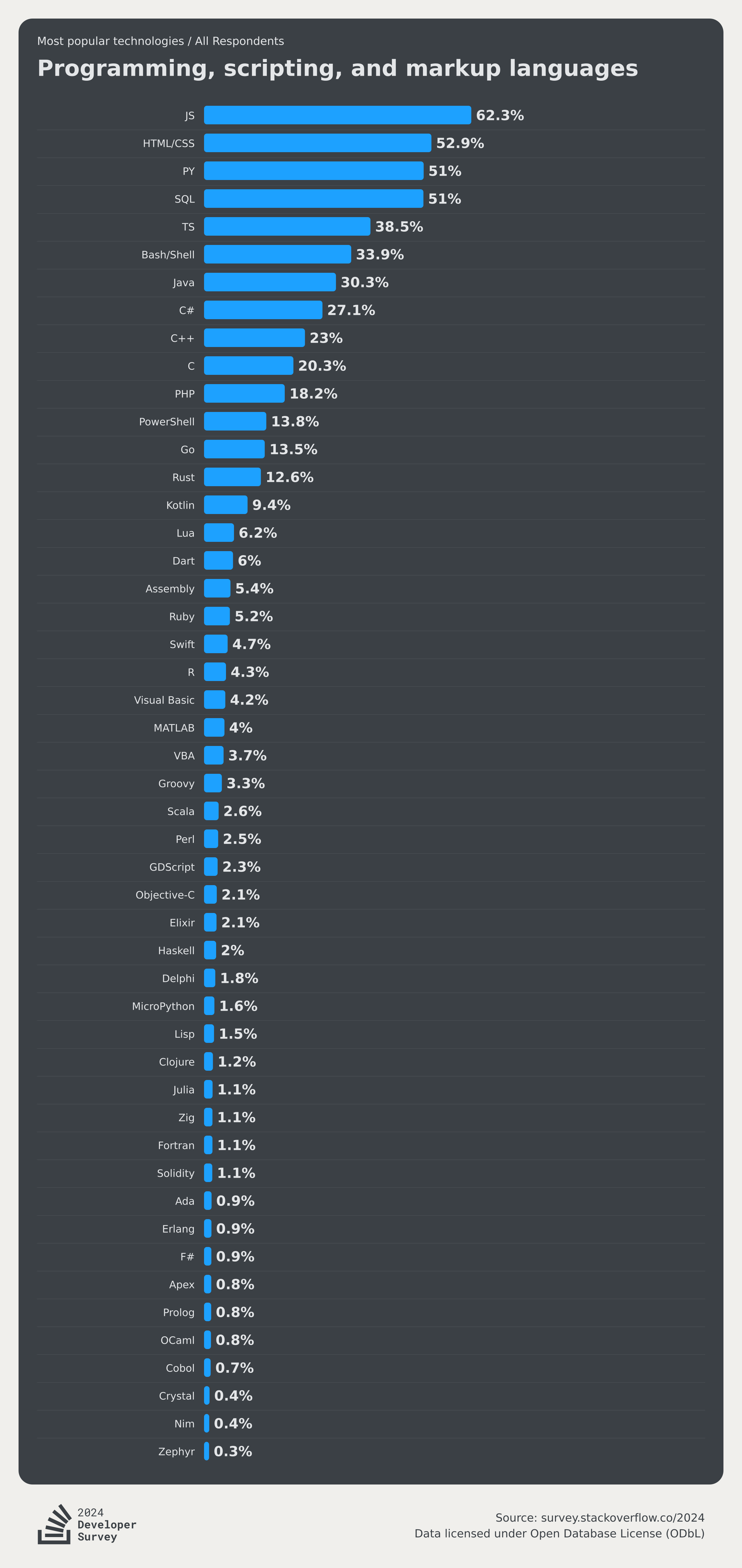
Some of the more modern alternatives like Go, Rust and Kotlin are close to the top 10 but still far away from the big players in the industry.
On the database front, we have SQL databases in the top 3 positions, and more specialized solutions such as Mongo, Redis and Elasticsearch also in the first 10.
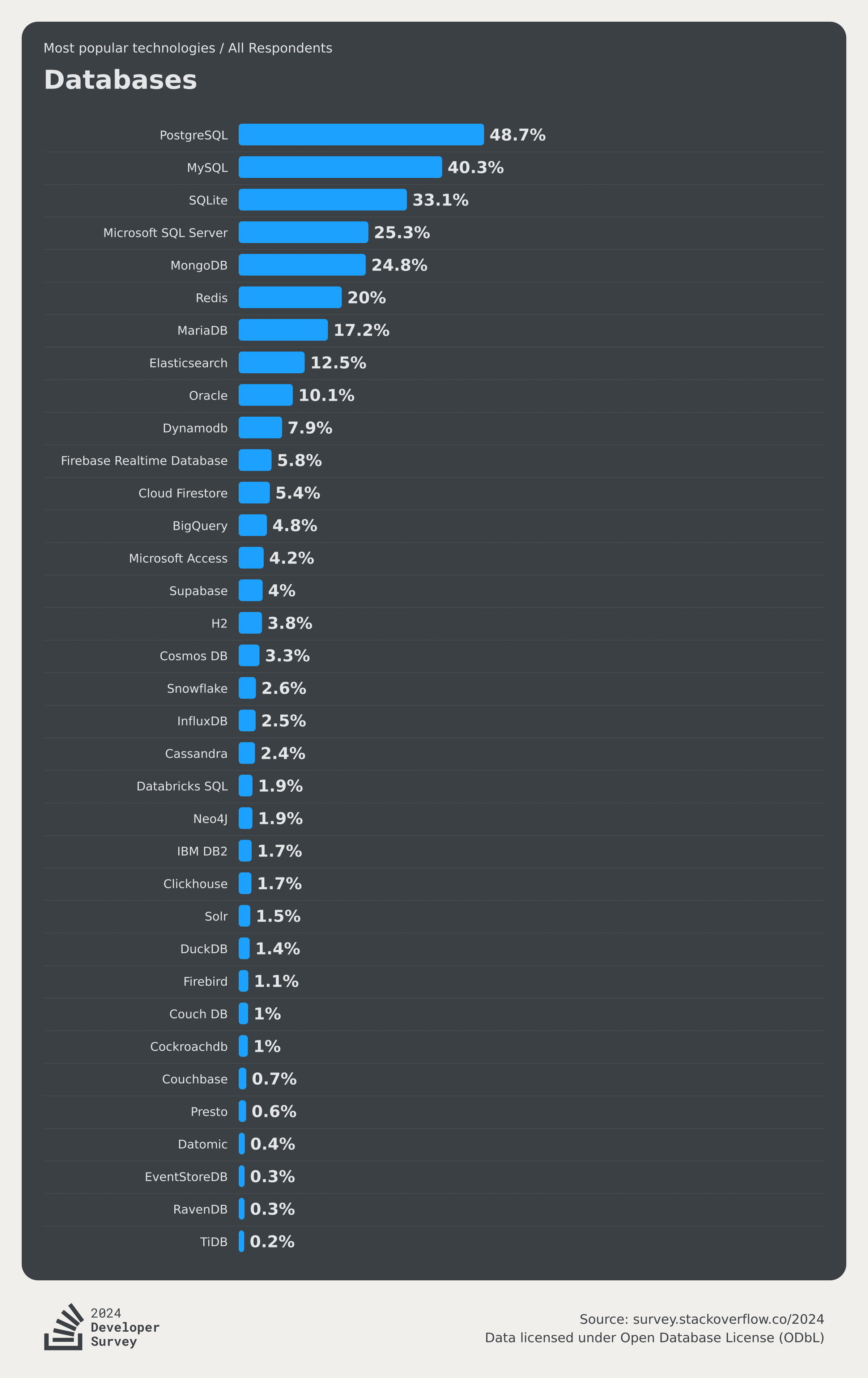
Other honorable mention is AWS leading the cloud platforms.
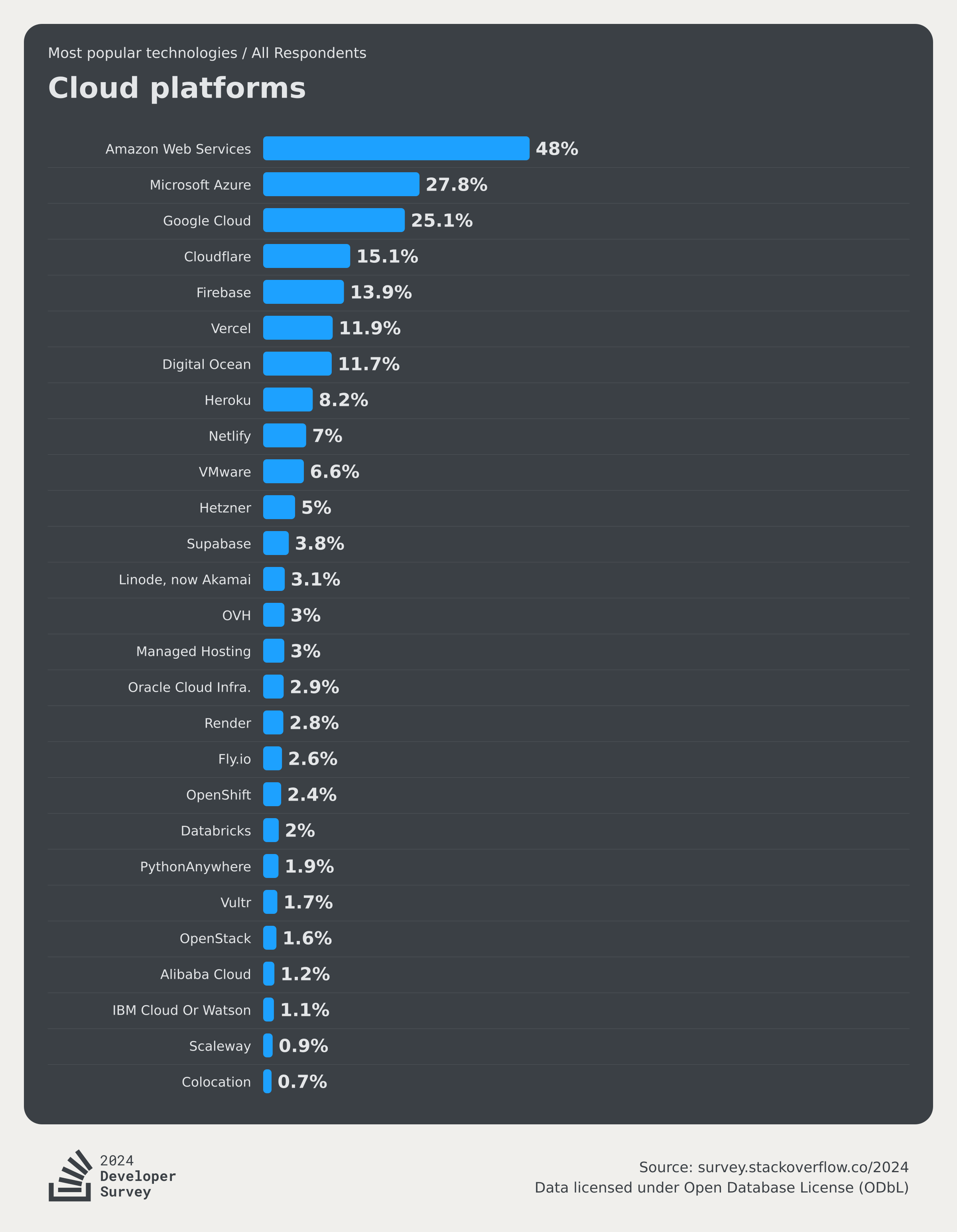
React leads web frameworks, and .NET is the most used among other frameworks.
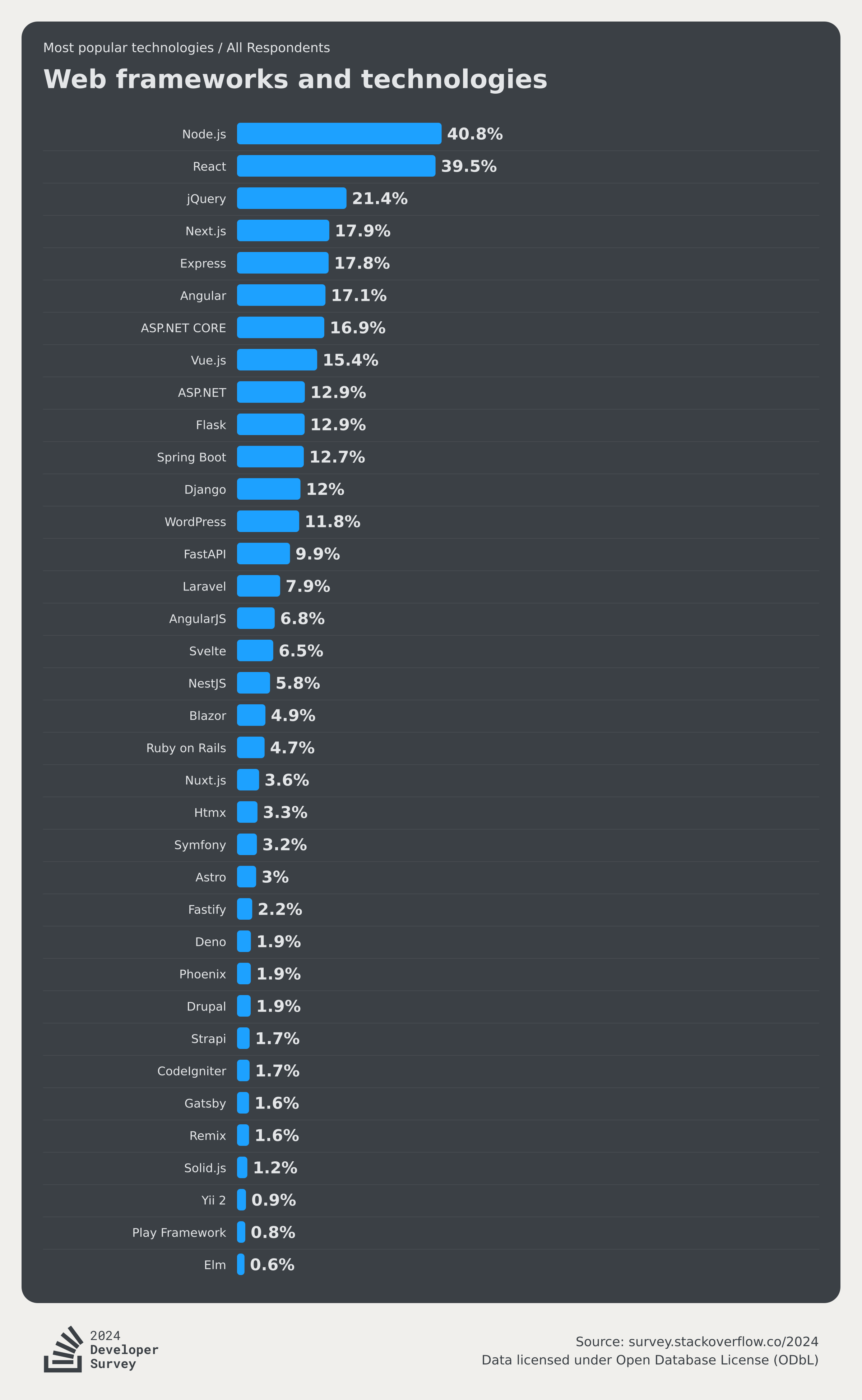
Docker is used the most by professional developers and Microsoft teams, the bane of our existence, is leading the synchronous tools section.
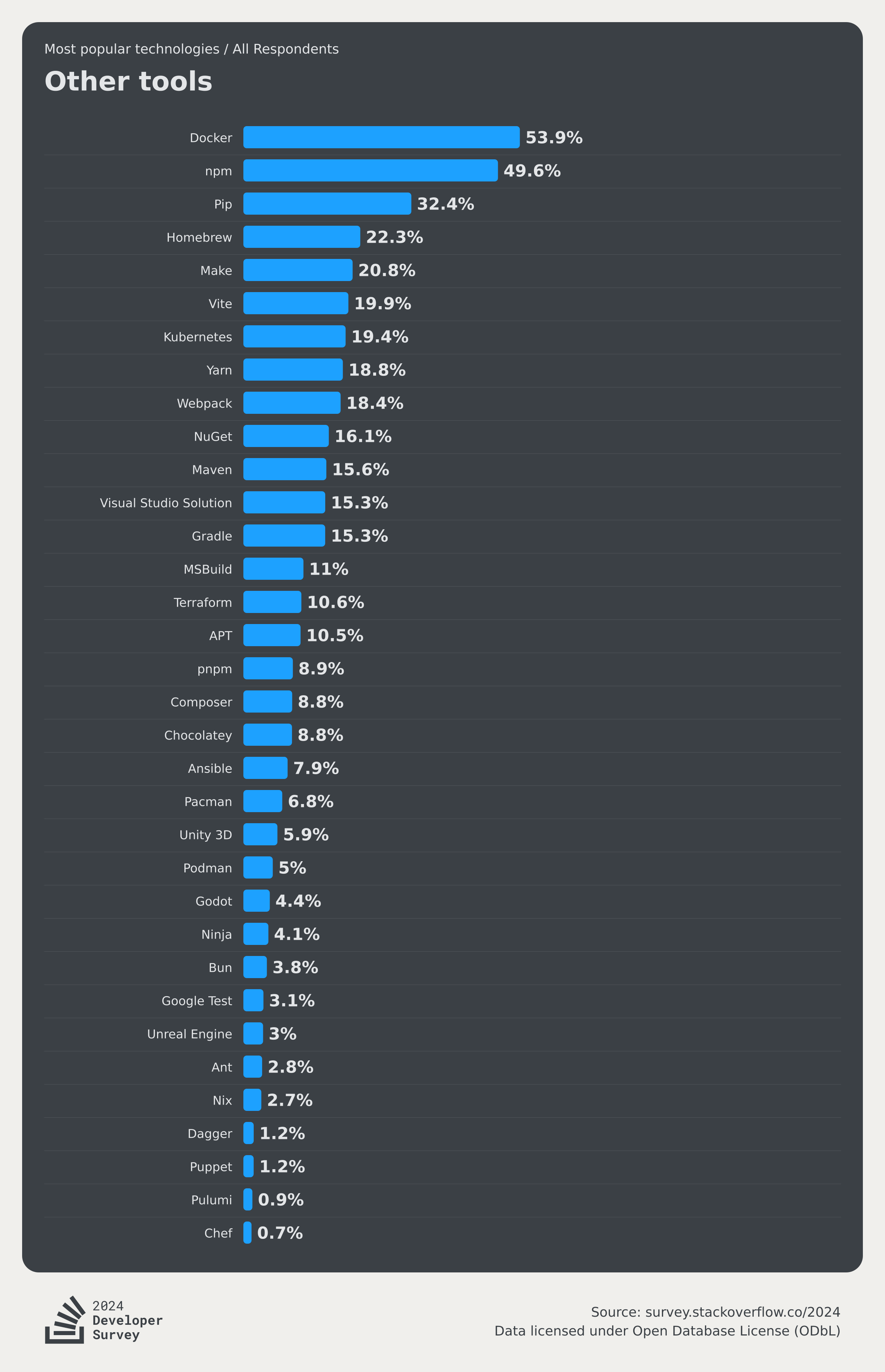
Kotlin v2
Since I mentioned Kotlin, it is worth noting that its much awaited version 2 is finally here with an improved K 2 compiler which offers performance improvements and a better architecture for multiplatform projects. On top of that, lambda functions are now aligned with the JVM optimisations, and smart casting is enhanced in various scenarios.
Llama 3.1
In the AI world meta released their most capable open source model to date, a 405 billion parameter model with a 128 000 context length. In layman’s terms a larger number of parameters means the model can capture more complex patterns and relationships in its training data, but at a higher computational cost. Expanding context length on the other hand enables handling more extended input sequences, improving the model’s performance on tasks requiring an understanding of intricate dependencies.
Meta seems dedicated to the open source model for their AI work. Of course, big tech companies giving away stuff for free is not a red flag.
Reusable Template Variables in Angular
Back to the web dev world, Angular announced a new way to define reusable template variables. This aims to enhance code readability and maintainability by reducing boilerplate and keeping logic closer to the template.
<div>
@let username = user()?.name ?? 'Guest;
<h1>Welcome, {{ username }}</h1>
</div>
The let directive works similarly to getters in terms of reactivity and component rendering impact. This is part of Angular’s already famous effort to simplify the dev experience with a more intuitive syntax.
Server Islands in Astro
Astro had another of its almost monthly releases, and the highlight is its new server islands. This is an experimental feature allowing you to combine static HTML with dynamically server-generated components in an efficient manner.
TinyBase v5
Finally, in the database world, TinyBase, the reactive data store for local-first apps reached its version 5. This release introduces a new manageable store allowing for deterministic merging of data changes, updates to the synchronization of data across different instances, and an improved module structure to make imports more intuitive.
If you find such updates useful you should consider following us on X, joining our newsletter or watching one of these videos next.
Until next time, thank you for reading!